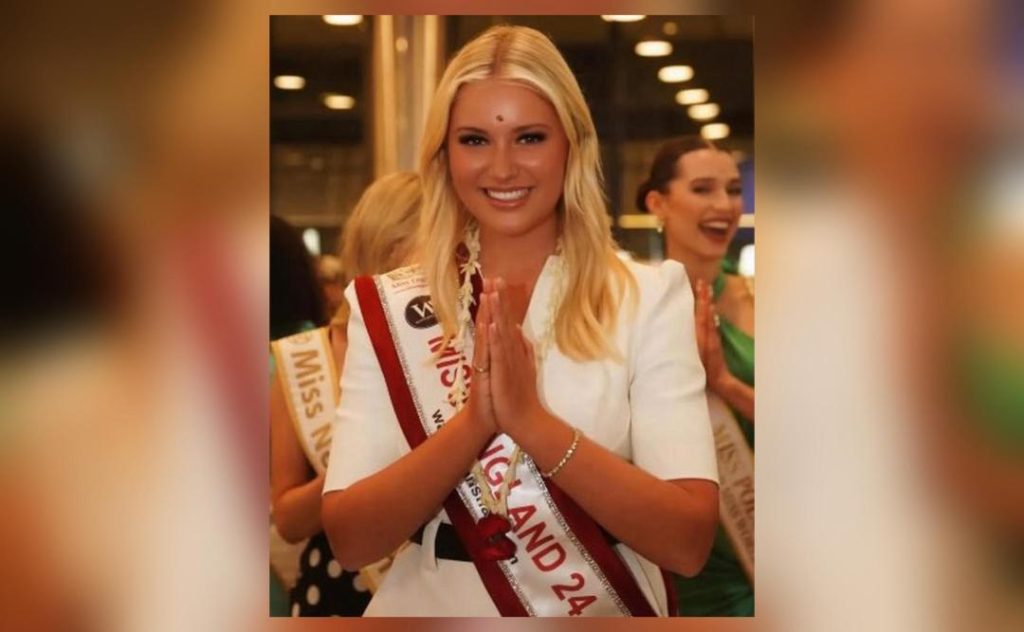
I Felt Like a Prostitute: Miss England Quits Miss World Contest
In a shocking turn of events, Miss England 2024, Milla Magee, has withdrawn from the prestigious Miss World contest, citing exploitation and demeaning treatment. Her decision marks a historic first for a UK titleholder and has reignited global debate over the ethics and relevance of modern beauty pageants.
Magee, who was crowned Miss England in July, was set to represent her country at the Miss World contest, which is being held in India this year. However, in a stunning move, she announced her withdrawal from the competition, citing the treatment she and other contestants received as “exploitative” and “demeaning.”
In an interview with a local news outlet, Magee revealed that contestants were paraded before wealthy sponsors, where they were expected to make themselves available for photo shoots and other promotional activities. She claimed that the experience left her feeling like a “prostitute,” stating, “I was treated like a commodity, not a person. I felt like I was being bought and sold, and it was degrading.”
Magee’s decision to withdraw from the contest has sent shockwaves through the pageant community, with many calling her a “hero” for speaking out against the exploitation. Her actions have also sparked a global debate about the ethics and relevance of modern beauty pageants.
Beauty pageants have long been a source of controversy, with critics arguing that they promote objectification and commodification of women. Many have also accused pageants of perpetuating harmful beauty standards and reinforcing harmful gender stereotypes.
However, proponents of pageants argue that they provide a platform for women to showcase their talents, intelligence, and beauty, and that they promote self-confidence and empowerment. They also argue that pageants raise money for charitable causes and provide a sense of community and sisterhood among contestants.
Despite these arguments, Magee’s experiences suggest that the Miss World contest, in particular, may be perpetuating harmful practices. The organization has faced criticism in the past for its treatment of contestants, including allegations of exploitation and mistreatment.
In response to Magee’s withdrawal, the Miss World organization has released a statement saying that it is “disappointed” by her decision and that it will “continue to promote and celebrate the beauty, intelligence, and talents of women from around the world.”
However, Magee’s decision has also sparked a wider conversation about the need for greater transparency and accountability in the pageant industry. Many are calling for pageant organizations to establish stricter guidelines and protocols to protect contestants from exploitation and mistreatment.
In the wake of Magee’s withdrawal, several other contestants have come forward with their own stories of exploitation and mistreatment. One contestant, who wished to remain anonymous, told a local news outlet that she was forced to participate in a photo shoot that made her feel uncomfortable and exploited.
Another contestant, who also wished to remain anonymous, claimed that she was subjected to body shaming and bullying by other contestants and organizers. She stated that she was told that she needed to lose weight and that her body was not “pageant-worthy.”
Magee’s decision to speak out against the exploitation and mistreatment she experienced has sparked a global conversation about the need for greater accountability and transparency in the pageant industry. Her actions have also inspired many women to speak out against exploitation and to demand better treatment and respect.
In conclusion, Milla Magee’s decision to withdraw from the Miss World contest is a powerful reminder of the need for greater accountability and transparency in the pageant industry. Her experiences, and those of other contestants, highlight the need for pageant organizations to establish stricter guidelines and protocols to protect contestants from exploitation and mistreatment.
As the pageant industry continues to evolve, it is essential that we prioritize the well-being and dignity of contestants. We must ensure that pageants promote empowerment, self-confidence, and respect for women, rather than objectification and commodification.






